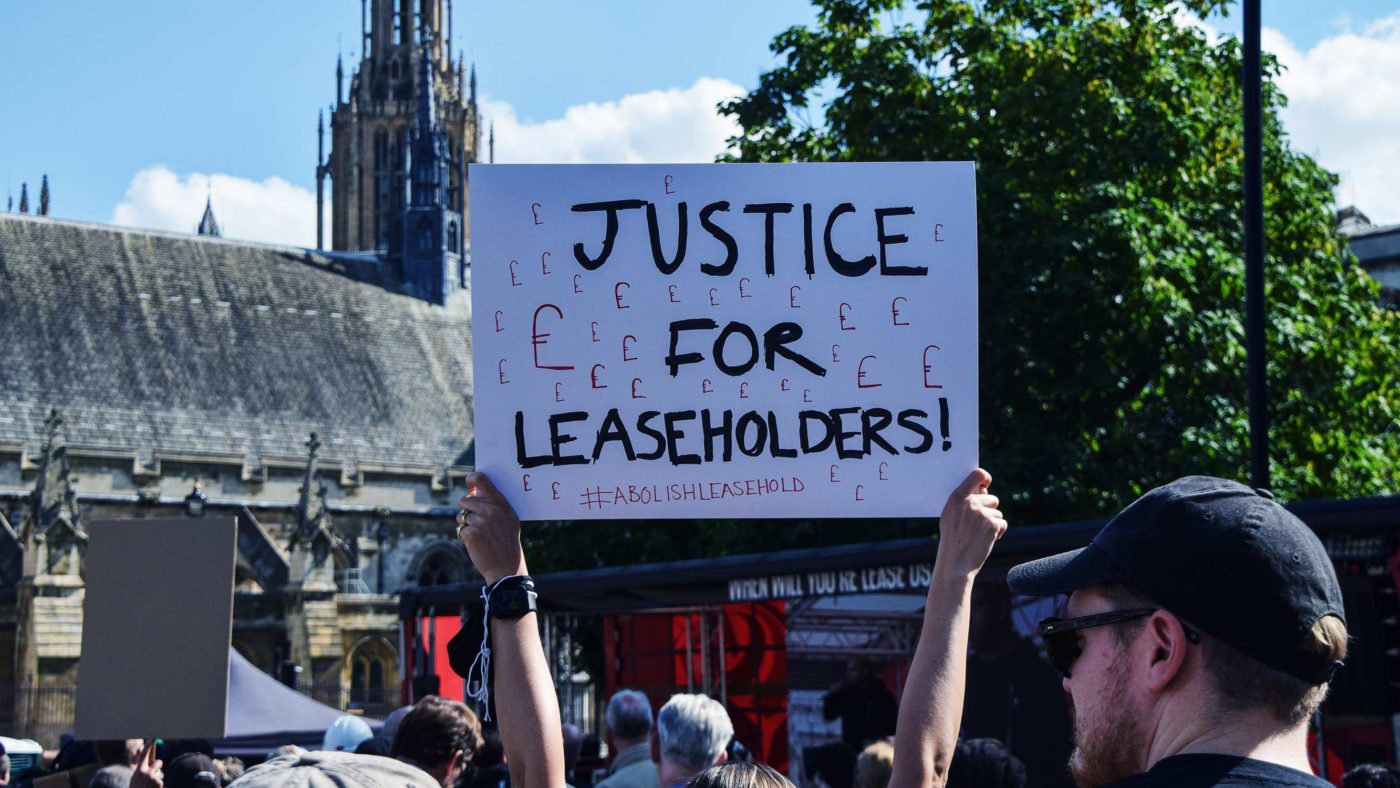Last week the Mail on Sunday reported that young, property-less voters would punish the Conservatives at the next general election. Having dropped radical planning liberalisation, and facing accusations of having nothing to offer aspirant homeowners (save for allowing ‘Street Votes’), the Government is desperately trying to find a transformative housing policy that is electorally popular, oven-ready and will not upset Nimby backbenchers.
But perhaps the Government already has one: the second tranche of leasehold reform, which was omitted from the Queen’s Speech despite promises to the contrary and millions of pounds of taxpayer money having been pumped into the reform programme that began five years ago. In July 2020, the Government’s legal advisors proposed a bold package of reforms to drag England and Wales away from playing Normans and Saxons when it comes to property law.
Leasehold tenure harks back to an age when land was correlated with power, with the freehold/landlord divide used by aristocrats to fund the Crusades. A relic of manorialism and serfdom, the leasehold system was exported across the British empire, but has been abolished in our former colonies and replaced with commonhold-style systems which remove third-party investor landlords and provide management control and freehold ownership to the paying homeowners.
Since 1880, enfranchisement, the policy that allows leaseholder tenants to become freeholders, i.e. bonafide property owners, has been a constant popular demand, with at least 18 attempts between 1884 and 1929 by Conservative and Liberal governments to legislate for it. The 1966 Conservative manifesto promised it. In 1974, a caucus of Tory MPs forced the Wilson government into making a series of improvements to the 1967 Leasehold Reform Act to help house lessees own their homes outright.
Concerned by Tory voter complaints in flats and mansion blocks in pivotal constituencies, Margaret Thatcher rushed to get leasehold reform onto the statute books before the 1987 general election. The law she pushed through allowed qualifying tenants to compulsorily buy out their freeholder if they could prove before judges that these absentee landlords were threatening the viability of their site through incompetence or fraud.
In 1993, the Major government went one step further, turning the fault-based right into a new right-to-buy policy called collective enfranchisement, giving flat leaseholders a statutory scheme to buy out their freeholders for the first time. The Duke of Westminster resigned from the Conservative in protest against the so-called ‘Marxist’ move.
With one in four homes in England and Wales now leasehold, and flat sales down 60% in three years amid sundry leasehold scandals, Number 10 must resist calls by a cartel of property developers and the freeholders’ lobby to keep this exploitative system in place, and instead bring in long-promised legislation.
Anglo-Welsh property law is so absurd that people pay premium prices for a flat and, despite expecting the dignity, autonomy and control that comes with homeownership, are deemed mortgaged tenants. They own and control nothing, yet pay for everything. In fact, there is someone above them, the freeholder, who has the superior ownership rights despite having a minority financial stake of, say, 3-5% of the block’s capital value.
Ultimately, part of the appeal of owning a home is leaving the landlord, but in England and Wales owning a flat means sharing your home and investment with an absentee, often offshore, landlord who has your chequebook and calls all the shots in your block. Service charges can quickly spiral and in some cases even dwarf mortgage payments, trashing capital values. Renters get exploited too, as their landlords pass on the costs of freeholder profiteering by upping the rent.
Reforming leasehold would ‘level-up’ England and Wales by banishing feudal leasehold to the history books in the biggest act of popular capitalism since Margaret Thatcher’s right-to-buy revolution, via a mass shift to commonhold.
It’s a move that would command broad political support. It would appeal to Tory free-marketeers, defenders of the principles of a property-owning democracy and opponents of monopolies, as well as to more centrist types concerned about land equality, social mobility and helping hard-pressed urban millennials.
The reforms would also be perfectly in keeping with Conservative philosophy. Randolph Churchill tried to introduce an Enfranchisement Bill in 1884 (yes, 1884!) so leaseholders could pay their freeholders to leave the land, thereby giving them homeownership (and voting rights). Thatcher envisioned part two of her homeownership crusade would involve transforming leasehold tenants into freeholders through commonhold, a bespoke scheme of freehold flat ownership akin to strata title that flourishes in Australia, Singapore, Hong Kong, Malaysia, and even Indonesia.
Indeed, Thatcher once said there was ‘no prouder word’ in British history than ‘freeholder’. She was not alive to see the toxification of this word as offshore sharks circled ordinary families’ blocks of flats to ruthlessly “sweat the asset” by scrimping on maintenance, letting buildings fall into despair, and hiking service charges.
If the self-styled ‘party of homeownership’ wants to expand our property-owning democracy and win an unprecedented fifth consecutive term in power, letting 4.6m leaseholders cast off their feudal chains is the way to go. Bringing these heavily trailed reforms into law would ensure flat owners are no longer treated as second-class citizens, but as masters of their own destiny with bricks and mortar ownership. If the Government fails on this, Labour will surely park their tanks on Tory lawn.
Click here to subscribe to our daily briefing – the best pieces from CapX and across the web.
CapX depends on the generosity of its readers. If you value what we do, please consider making a donation.


